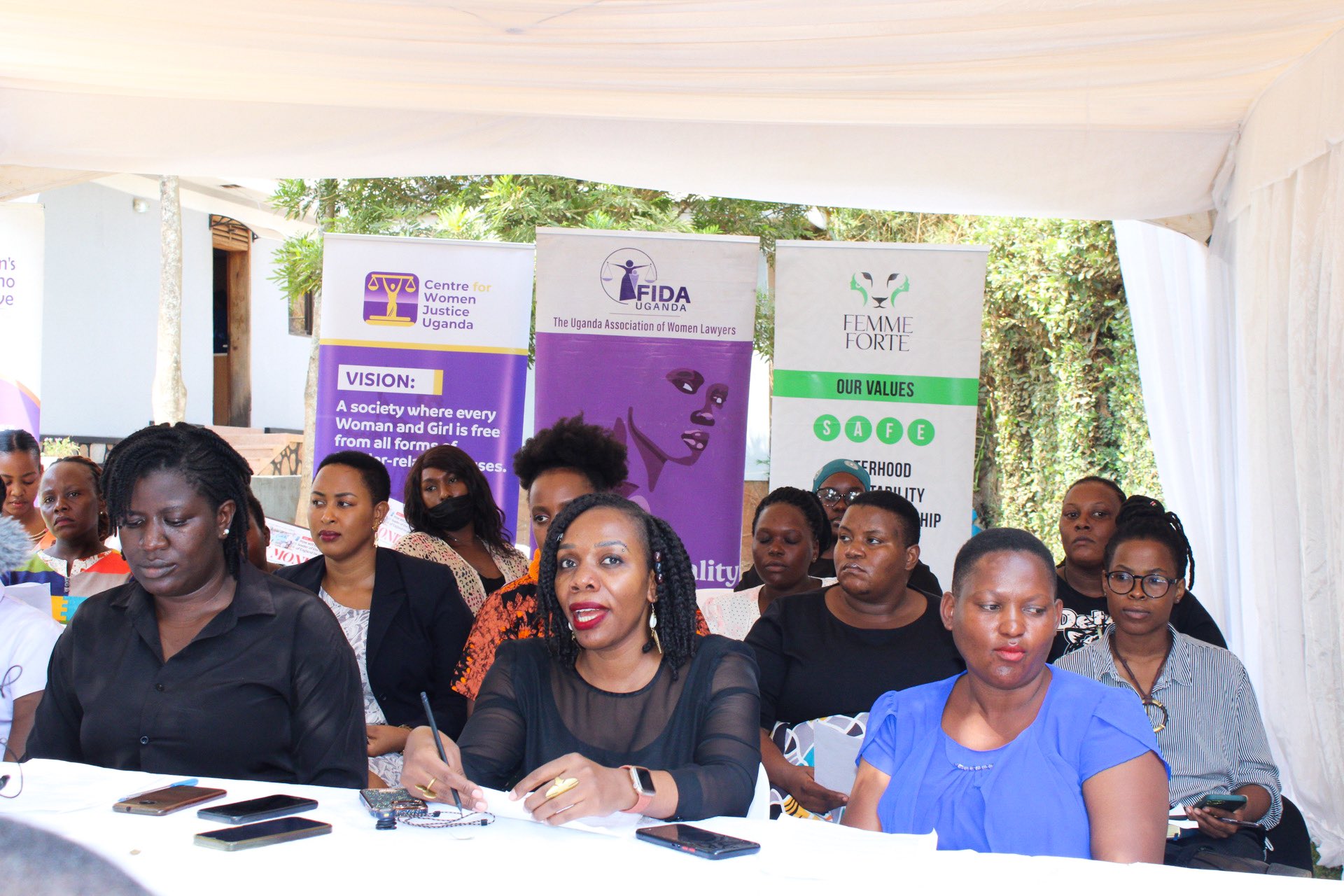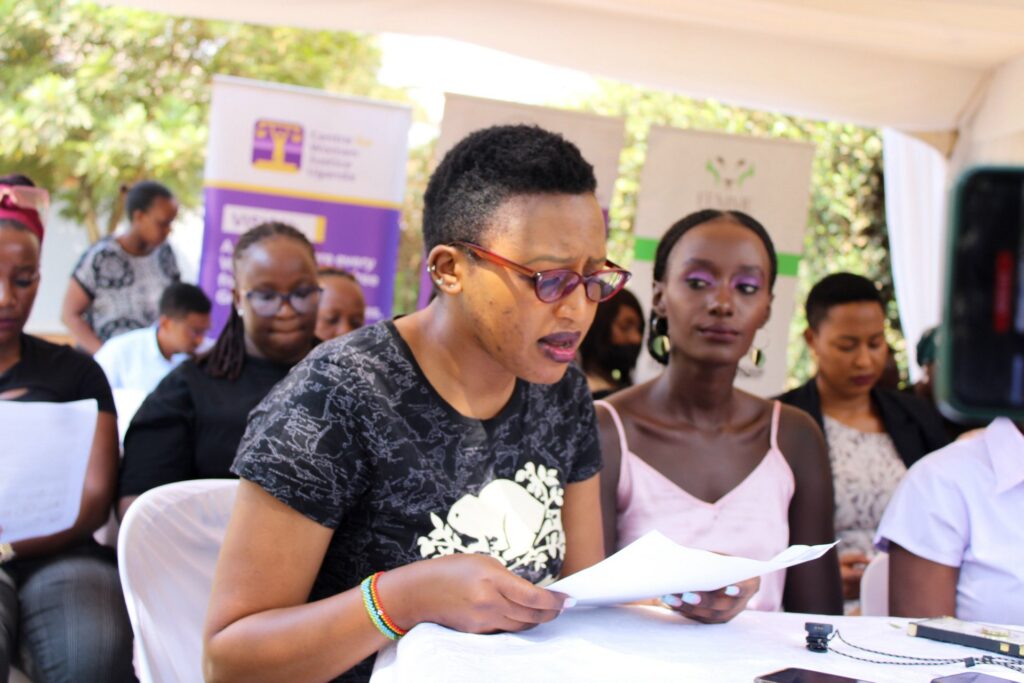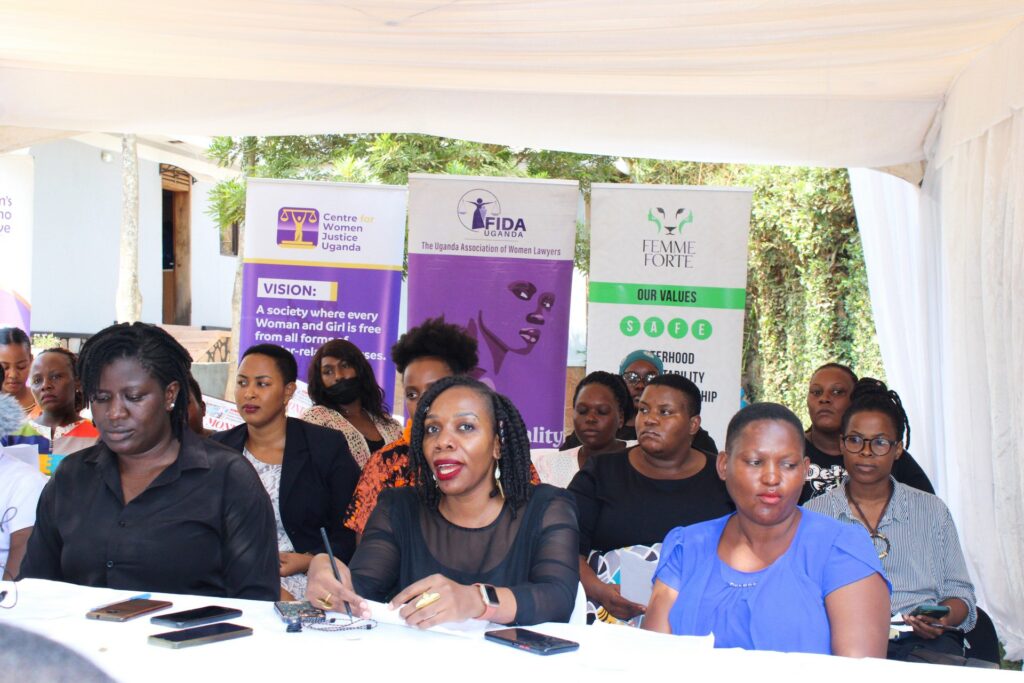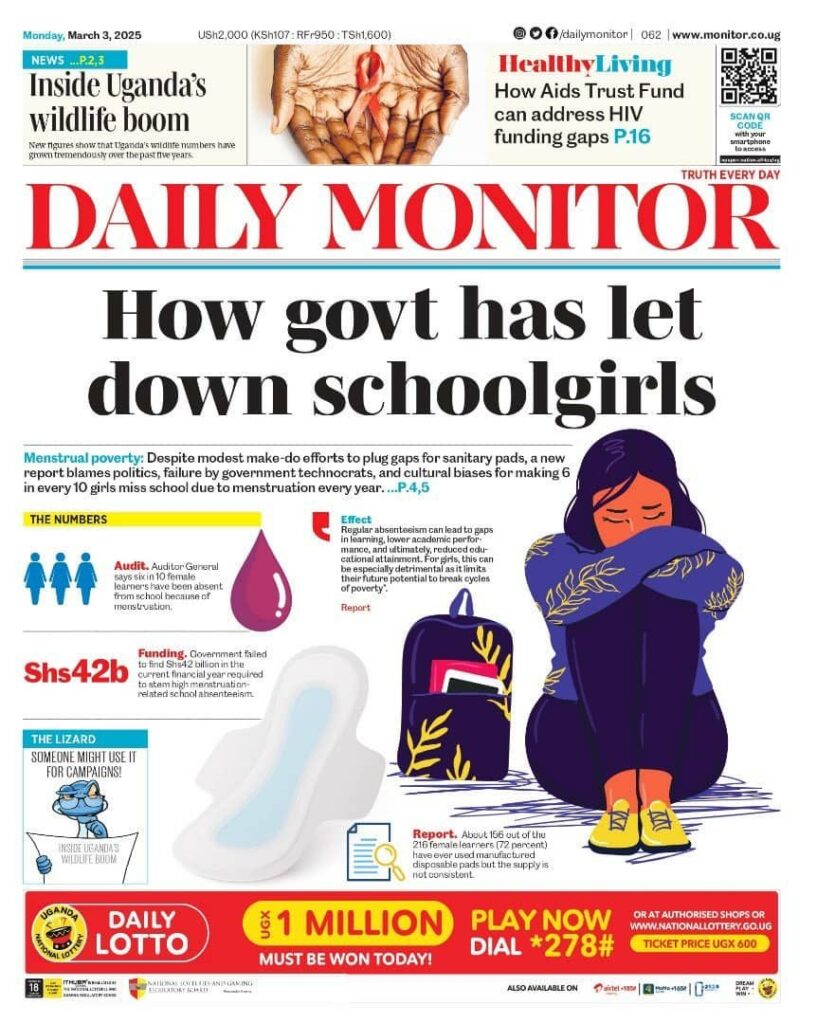
 Mama FM
Mama FM

 Mama FM
Mama FM
5 March 2025, 2:40 pm

By Byamukama Alozious
Women’s rights groups in Uganda have called on the government to take immediate action to address the country’s menstrual health crisis, which is affecting thousands of girls and women nationwide.
The call to action was made during a press conference held on Wednesday at a local venue in Nalya, Wakiso district. The event brought together representatives from various women’s organisations, including Femme Forte Uganda, Women’s Probono Initiative, and Akina Mama Wa Afrika, among others.
According to a recent audit report, 64% of girls in Uganda miss school due to a lack of access to menstrual hygiene products. A feasibility study also found that nearly 20% of girls miss at least one day of school each month because of their period.
“We are calling on the government to take immediate action to address this crisis,” said a representative from Femme Forte Uganda. “Menstrual health is a human right, yet some girls and women are being denied this right due to a lack of access to basic necessities like sanitary pads.”
The groups criticised the government for citing resource constraints as an excuse for inaction, arguing that menstrual health interventions require just 0.05% of the national budget.
Rahom Bukirwa Maria, the Programmes Manager at Women’s Probono Initiative, urged the government to exempt menstrual products, including sanitary pads, from taxation. “Most of these products are not free, even for school-going children, which is a significant concern,” she said.
Grace Namataka from Akina Mama Wa Afrika highlighted the alarming rate of school dropouts among girls due to menstrual health challenges. “In some areas, school dropout rates among girls are high because of menstrual issues,” she said. “At this moment, some girls have resorted to inhumane and unhealthy alternatives, such as using sand packed in plastic bags (kaveera) as makeshift sanitary pads. Others rely on reusing washed cloth, which, while a more sustainable option, poses significant health risks.”
A recent feasibility study on menstrual health and school absenteeism among adolescent girls in Uganda found that 19.8% of girls interviewed reported missing at least one day of school during their last period, while 17.3% had missed school in the past 30 days due to menstruation. Among those who missed school, 38.5% cited ‘fear of leaking blood’ as the primary reason for their absence.

Uganda’s emphasis on policing morality has also been criticised for diverting attention away from pressing social issues. The recent push to criminalise cohabitation under the proposed Marriage Bill 2024 has been cited as an example of this.
The broader religious community has also faced accusations of perpetuating violence and discrimination by endorsing laws that harm marginalised groups. Additionally, its silence on critical issues such as sexual and reproductive health, gender-based violence, and menstrual health has drawn criticism.
The government must ensure domestic financing for essential health services, including menstrual hygiene products, and develop a comprehensive plan to address funding gaps in the health and education sectors.


To religious, cultural, and other opinion leaders, the groups issued a call to action: “Cease fuelling moral panic over sensitive issues, particularly those affecting women and other marginalised groups. Instead, use your platforms to highlight critical issues, such as condemning violence against women and holding the government accountable for its commitments to realising the full range of women’s human rights, including the right to education, dignity, privacy, health, expression, and association. This is essential to achieving Agenda 2030, as it is linked to SDGs 3 and 5, ensuring that no one is left behind.”